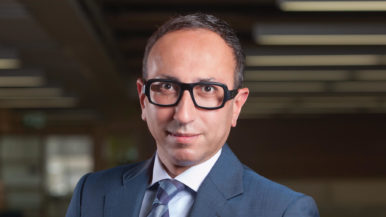Q&A: Hamid Ghassemi-Shall, the Toronto shoe salesman who spent five years on Iran’s death row
Toronto shoe salesman Hamid Ghassemi-Shall faced charges of espionage in Iran. Now he’s home, trying to pick up the pieces.

What was life like before you made your ill-fated trip to Iran in 2008?
My wife, Antonella, and I lived in a semi in the Beach. I sold shoes at Calderone in the Eaton Centre; she worked for a computer company. We didn’t have much money, but we were happy. We were planning to adopt a baby.
Where did you meet Antonella?
It was a Saturday in 1995. She walked into Calderone, and it was like seeing a pool of water in the desert. I sold her a pair of beige slingbacks and asked for her number. We went to Golden Thai the next night and got married the following year.
In 2008, you visited your ailing mother in Tehran. What happened next?
The police arrested my brother, Alborz, and when I went to find out where they had taken him, men with guns surrounded me, put me in a car, drove me to a military detention centre, blindfolded me and locked me in a tiny room.
What did you think was going on?
I had no idea. When I was growing up in Iran, my family never had any problems with the police or government.
What did they want to know?
They claimed that I sent an email to Alborz in 2004 asking for classified information. He was a retired naval officer who had access to high-level information. In Iran, such a person must wait five years before travelling abroad, to allow time for intelligence to expire. My brother applied for a passport just two years after his retirement, which I think raised red flags.
Applying for a passport sounds like the opposite of espionage to me.
There is a culture of paranoia in Iran. If you’re not in the government’s circle of trust, you’re the enemy, and they’re always looking for the enemy. My brother may have pissed off someone powerful. I just don’t know.
What methods did they use to try to coerce you into talking?
They kept me in solitary confinement in a six-by-10-foot cell for a year and a half. I slept on the concrete floor. They handcuffed me, punched me, swore at me, cursed my family. But I never made something up to get them to stop. If they found weakness, I knew they’d torture me more.
Did you fear you’d go insane?
Well, I talked to myself, just to empty my mind.
Did you get a trial?
After eight months, I was given 15 minutes with a lawyer in the presence of a judge. I pleaded not guilty to espionage and was exonerated, but the judge ruled that I had co-operated with the opposition and gave me a death sentence anyway. They put me in the general population. I had a bunk and could talk to the other inmates, but the uncertainty was unbearable. Any minute could have been my last.
What was your darkest moment?
When Alborz died. They said he had stomach cancer. One day they took him away and he didn’t come back. The medical report said he had a brain hemorrhage.
You think otherwise?
It could have been a blow to the head. I don’t know.
Your wife, meanwhile, rallied Amnesty International, did countless media appearances and attempted to plead your case face-to-face with then-president Mahmoud Ahmadinejad.
I had no idea of the extent of her efforts. I am so grateful.
In September, just before the new Iranian president Hassan Rouhani’s first speech at the UN, everything changed.
Yes. Because of the media pressure, a court ruled that though I was guilty—they could not officially admit a mistake—I had served five years and was free.
How did you feel?
I was happy, but I wanted an admission of their guilt.
How are you coping now?
I am not sure. The suffering is like a tattoo on my brain. I can cover it, but it will always be there. I need to get a checkup, but I must wait three months to get an OHIP card because I was outside of Canada for longer than seven months.
What will you do for money?
I don’t know. I’ve been out of the shoe business for years. I used to work in computers, but things are so different now.
What’s changed most since you left?
The buildings along the waterfront. Five years, and they’re everywhere! It is, of course, as cold as ever here. I don’t mind so much. I’m just happy to be home.





